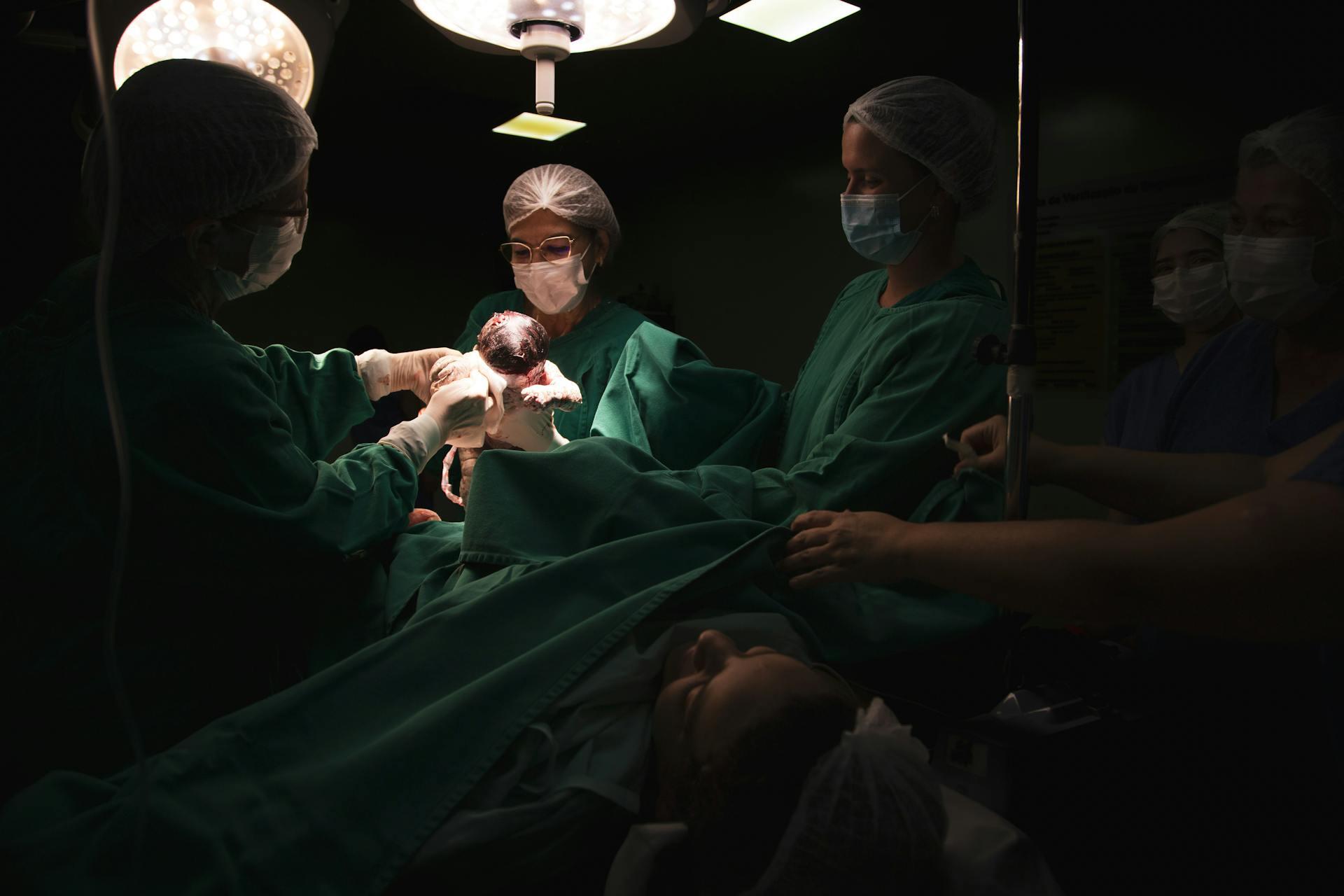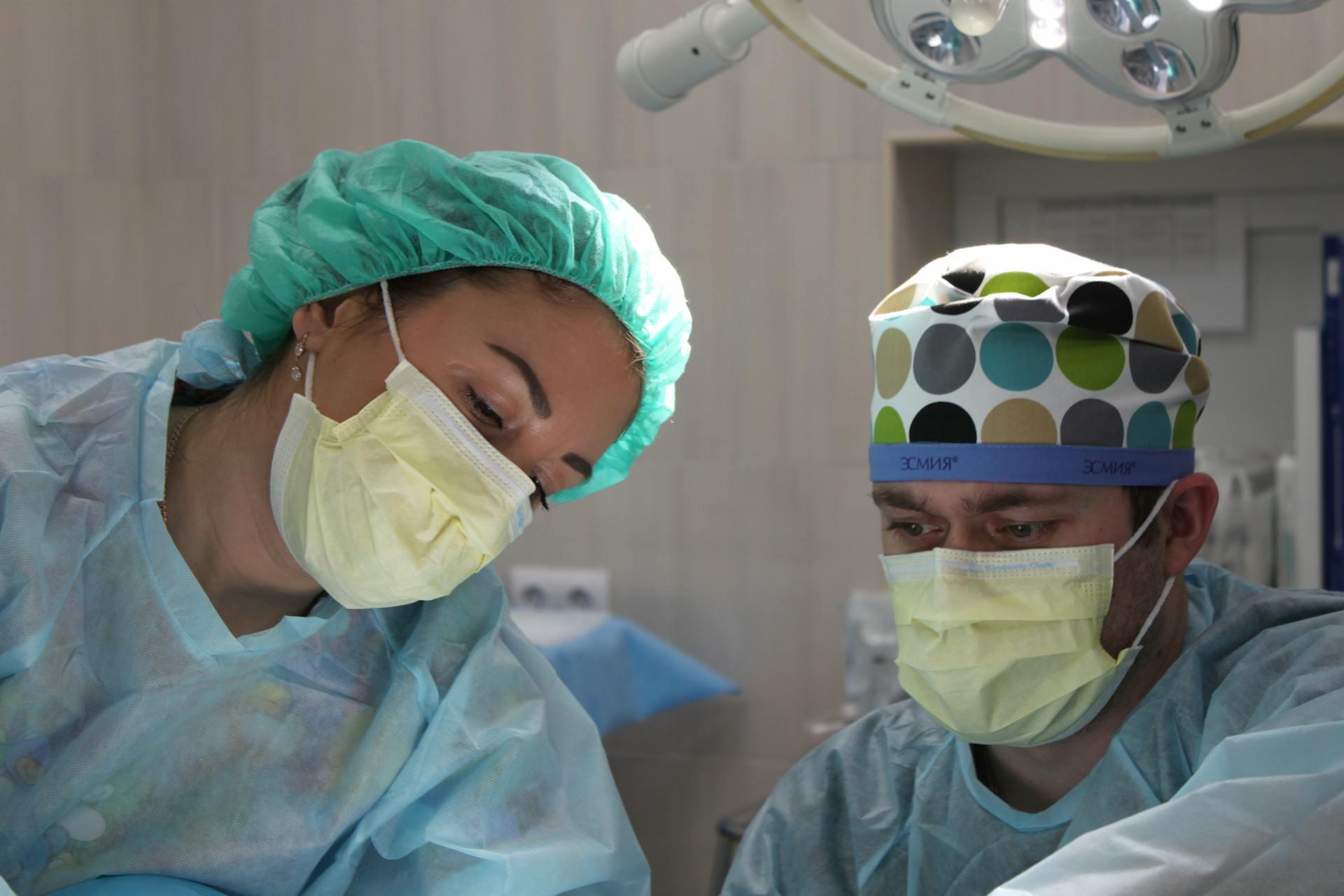Walk into any NHS or private hospital in the UK and you'll quickly notice that there are not just one, but several types of nurses. For instance, in the space of one ward, you could find a children's nurse calming down a frightened child or a psychiatric nurse helping someone vulnerable get through a crisis. Each role is very different from the others, but together they form the current backbone of healthcare in the UK.
In this article, part one of an in-depth series on nursing, we'll take a close look at several of the most common nursing professions available in the UK. We'll also explain how they differ from each other, the qualifications needed to become one, and the type of patient care they're directly focused on. So if you're thinking about becoming a nurse yourself, keep reading to find out which role might suit you the best!
| Nursing Role | What They Do | Typical Salary in the UK |
|---|---|---|
| Adult Nurse | Treat patients with all sorts of conditions in hospitals, GP surgeries, and more | £29,970–£52,809 (Band 5 to Band 7) |
| Children's Nurse | Provide medical care emotional support for youngsters including infants, children, and teens | £28,407–£34,581 (Band 5 starting range) |
| Mental Health Nurse | Support people with managing psychiatric conditions like depression or severe anxiety | £29,970–£59,000+ (Band 5–Band 7+) |
| Learning Disability Nurse | Helps people with learning disabilities live independently and maintain their health | £28,407–£34,581 (Band 5 range) |
| Neonatal Nurse | Cares for premature and critically ill newborn babies in intensive units | £29,970–£52,809 (Band 5–Band 7) — overlaps general nursing bands |
| Critical Care Nurse | Works in ICU units where they monitor and stabilize patients in life threatening situations | £38,682–£54,710 (Band 6–Band 7) |
| Oncology Nurse | Work with cancer patients through treatment and recovery | £29,970–£52,809 (Band 5–Band 7) |
| Family Nurse Practitioner | A more advanced type of role closer to a doctor. They can diagnose and prescribe medicine | Band 7: £47,810–£54,710 |
| Psychiatric Nurse | Specialises in acute psychiatric care, often working in secure units or crisis intervention teams | £24,907–£44,503 (Band 5–Band 7) |

What Are the Core Nursing Specialities in the UK?
Before being able to specialise in areas like oncology or neonatal care, every nurse in the UK begins by registering with the Nursing and Midwifery Council (NMC). To do so, they must choose between one of four distinctive core fields: adult, children's, mental health, or learning disability nursing. Let's examine what they do in more detail below.
Adult Nursing

Making up the largest part of the nursing workforce, adult nurses primarily care for patients aged 18 and above. They're trained to treat everything from short-term injuries and serious illnesses to long-term conditions like diabetes, asthma, or arthritis.
On a typical shift, an adult nurse could be expected to do things like help an older patient recover after surgery in the morning and then coordinate community follow-up care in the evening. The role is very varied, and pays to be adaptable and on your toes at all times. Many people who train in this field go on to pursue broader medical nursing careers in the UK
Children's Nursing
On the other hand, Children's Nurses (sometimes called pediatric nurses) are tasked with helping patients from infancy to their teenage years. The work they do isn't solely limited to physical treatments either, and can involve offering reassurance to anxious children or helping families through stressful situations.

In order to excel as a children's nurse, you'll need to be kind, compassionate, and, of course, good with kids. As a result, parents often make the best children's nurses.
Each of the fields listed here requires a Bachelor of Science in Nursing (BSN) in the chosen speciality. Once registered, nurses can then remain within their field or choose to branch out into specialist or advanced practice roles
Mental Health Nursing

Mental Health nurses specialise in supporting people struggling with psychological or emotional difficulties, including anxiety and depression, to schizophrenia and bipolar disorder. A typical day on the ward could involve one to on therapeutic sessions, crisis intervention, or medication management.
More than most nursing roles, mental health nurses have to be very patient and empathic, while also having the ability to listen to their patients without judgment.
Learning Disability Nursing
Learning disability nursing is one of the most rewarding yet often overlooked branches of the profession. As a learning disability nurse, you'll work with children, adults, and older people who all have learning disabilities - helping them lead healthier and more independent lives.

Unlike other nursing roles, learning disability nursing places a strong emphasis on advocacy and inclusion. Essentially, this means you'll be there to make sure patients are not sidelined or denied the same quality of healthcare just because they have a disability.
How Does the Nursing Career Pathway Work in the UK?
Before we jump into the next section, let's take a brief pause to look at how someone actually becomes a nurse in the UK. Most students start by obtaining their university degree, but what happens after that depends on the choices a nurse makes and the experiences they gain along the way. Check out the timeline below for more info.
Step 1
Choose Your Field
As mentioned previously, every nursing student starts their journey by applying for a Bachelor of Science in Nursing (BSN) and then selecting one of the four recognised fields (explained in detail above)
Step 2
Completing Training and Placements
Generally, it takes most students around three years to complete their nursing degree. During this time, you'll be expected to complete academic study and attend placements across the NHS
Step 3
Gaining Registration
Congrats, you've graduated. Now, you'll need to join the Nursing and Midwifery Council (NMC) register. This is when you officially gain the title of registered nurse and can practice professionally around the UK
Step 4
Starting Out As a New Nurse
Most new nurses begin as Band 5 staff nurses, learning to manage the demands of busy shifts while slowly building up confidence in their clinical skills
Step 5
Finding Your Niche
After gaining some experience, many nurses decide to move into specialist areas like oncology, critical care or neonatal nursing. However, this usually requires extra training or postgraduate study
Step 6
Moving Up the Nursing Ladder
As their careers continue to develop, many nurses move into advanced practice, take on leadership of teams, or share their knowledge through teaching and research. These roles usually come with Band 7 or 8 pay, too
Nurse Salaries
Pay in nursing isn't entirely the same for every role. For instance, as a newly qualified nurse, you'd likely earn somewhere in the region of £28,000 a year. However, as you gain confidence and experience, it's not unusual to earn upwards of £50,000. Likewise, senior nurses, advanced practitioners and nurse consultants can earn up to £65,000,
Band 5 – Newly qualified staff nurses (starting salary around £28,000)
Band 6 – Experienced nurses, junior specialists (£35,000–£42,000)
Band 7 – Ward managers, senior specialists (£43,000–£50,000)
Band 8+ – Senior leadership, advanced practitioners, consultants (£51,000+)
What Specialist Nursing Roles Are Available in the UK?
As humans we want to fix things. But in my role, we’re not there to save anyone but to do what we can to improve the life they have
Senior Health Care Assistant Steph, RCN Magazine
Typically, as nurses gain more experience working in one of the four fields, they often decide to steer their career in a newer/more challenging direction by moving into specialist areas. With this specialisation comes the opportunity for more responsibility, more autonomy, and in many cases, a higher salary too. Many nurses also move into advanced roles where they can prescribe, diagnose, and manage care more independently. This is known as advanced practice nursing.
Neonatal Nursing

Neonatal nurses work in one of the most high-pressure and emotional environments in nursing: caring for premature and critically ill newborn babies. As a result, it's an area where every detail matters and mistakes simply aren't an option.
While the role is pretty demanding and highly stressful, it's also deeply fulfilling. After all, few experiences compare to seeing a premature baby grow stronger day by day, knowing that your care played a pivotal part in that progress.
Critical Care Nursing
You'll find most critical care nurses in Intensive Care Units (ICUs) and High Dependency Units (HDUs) where they care for patients facing life-threatening conditions. Due to this, the ability to stay focused under intense pressure is a definite must.

From operating advanced life support machines to keeping families up to date with their loved one's status, critical care nurses are one of the most vital nurses needed throughout the health workforce. However, the role isn't for the easily upset or overwhelmed person.
Oncology Nursing

Oncology nurses are there to support cancer patients through diagnosis, treatment and recovery. Their work straddles both clinical and emotional, with them administering chemotherapy while being a source of reassurance during what is often the hardest journey of a patient's life.
While many nurses only cross paths with patients for a short time, oncology nurses often become a steady presence in their lives of cancer patients - supporting them through months or potentially years of treatment.
Family Nurse Practitioner
Family nurse practitioners work at a very advanced level and essentially bridge the gap between nurses and GPs. Unlike normal nurses, they have the power to assess, diagnose, prescribe and manage a treatment plan for their patients.

In many towns or cities where seeing a doctor isn't always easy or straightforward (with long waiting lists being all too common), family nurse practitioners often become the first port of call for people to turn to instead.
Psychiatric Nursing

Psychiatric nurses specialise in acute mental health care, often working with patients in secure units or during crises. Their type of work combines clinical expertise with therapeutic support, helping people manage severe psychiatric conditions safely.
Obviously, this role requires a lot of resilience, as nurses in this field are regularly exposed to all sorts of extreme behaviour. However, much like the other roles listed, it can still be very rewarding, especially when seeing patients finally make a breakthrough.
Summarise with AI:
























